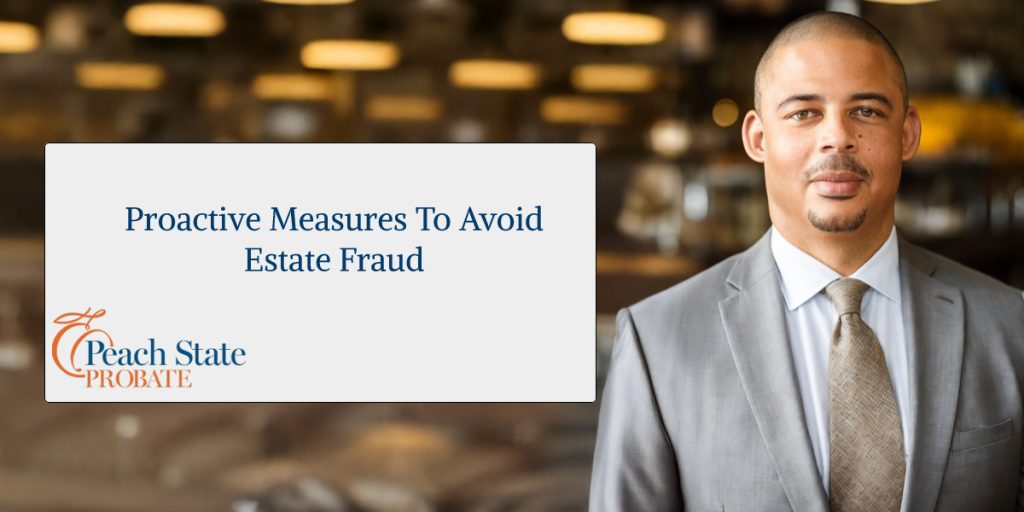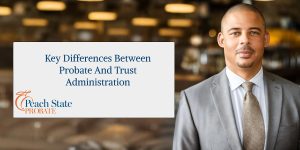## Preventing Estate Fraud: Essential Strategies for Safeguarding Your Legacy
Estate fraud is a pervasive issue that affects countless families, often leading to significant financial losses and emotional distress. As estate planning becomes increasingly complex, it is crucial to recognize proactive measures to safeguard against these risks. By understanding estate fraud and implementing strategic planning techniques, you can protect your assets and ensure your wishes are honored upon your passing.
In the realm of estate planning, focusing on measures to prevent estate fraud is more vital than ever. This blog aims to address key strategies that individuals and families can adopt to safeguard their estates from fraudulent activities.
## Understanding Estate Fraud: What You Need to Know
Estate fraud encompasses a wide range of illegal activities aimed at embezzling or misappropriating a person’s assets during the estate planning process or after their death. Common forms of estate fraud include forging financial documents, manipulating wills, and exploiting vulnerable individuals, such as the elderly. With such a broad spectrum of tactics employed by fraudsters, it is essential to stay informed about the methods they use and the legal implications involved.
This type of fraud can occur at any stage of the estate management process, from the drafting of wills to the distribution of assets. Unfortunately, many victims fail to recognize that they have been defrauded until it is too late, making proactive measures crucial in avoiding such devastating outcomes. Awareness of the signs of estate fraud can empower individuals and families to take action before significant harm occurs.
Because the consequences of estate fraud can be far-reaching, not only depleting financial resources but also fracturing familial relationships, understanding the nuances of estate fraud becomes a compelling necessity. By recognizing the importance of a robust legal framework surrounding estate planning, you can better protect yourself and your loved ones from the burdens that come with estate fraud.
## The Importance of Addressing Estate Fraud
Investigating why estate fraud is a matter of concern highlights its potential implications on both personal and societal levels. At its core, estate fraud directly impacts the intended beneficiaries of an estate, often stripping them of their rightful inheritances. The repercussions can extend beyond monetary losses; families may experience rifts as the situation unfolds, causing lasting emotional stress.
Additionally, public trust in the legal and financial systems can erode if estate fraud becomes a widespread issue. The ramifications of fraudulent behaviors may discourage individuals from engaging in estate planning altogether, which can perpetuate a cycle of financial instability for families. When people fail to create legally-binding documents to protect their interests, they leave themselves vulnerable to manipulation and exploitation.
Therefore, understanding the importance of addressing estate fraud enables you to actively contribute to safeguarding not only your legacy but also the financial well-being of your family. As you recognize the potential threats, you become better equipped to navigate the complexities of estate planning while ensuring that your wishes are fulfilled without interference.
## Legal Structures for Preventing Estate Fraud
A strong legal framework can significantly reduce the risk of estate fraud. Implementing specific measures within the legal context is essential for protecting your assets. Firstly, thorough documentation of estate planning materials, including wills, trusts, and powers of attorney, is critical. It is important to ensure that all documents are drafted by a qualified attorney who comprehends the complexities of estate law, as incorrectly formatted documents can create opportunities for fraudsters to exploit legal loopholes.
Estate laws across Georgia also provide protections against fraud through specific measures. You can reinforce these protections by keeping detailed records of communications and modifications regarding your estate plan. Regularly updating your estate documents, especially following significant life changes, can further minimize the risks associated with unsatisfied wills or outdated powers of attorney.
In cases of trust management, incorporating an impartial third-party trustee is another effective strategy. This individual or institution can oversee asset distribution, ensuring compliance with legal standards and reducing the likelihood of fraud. A transparent estate planning process that involves multiple parties can counteract fraudulent behaviors that may arise within isolated transactions.
## Real-World Insights: Cases of Estate Fraud
Examining real-world examples of estate fraud unveils just how critical protective measures truly are. One notorious case involves the forged modifications of a will, where a family member altered the distribution of assets to their benefit after the original document was prepared. Unfortunately, the other heirs only discovered the deception after lengthy and costly court battles.
In another instance, a fraudulent beneficiary seized control of an elderly individual’s assets by manipulating legal documents and coercing them into signing over rights to their property. This case highlights the surveillance necessary when dealing with elderly individuals, who may be more susceptible to deceptive schemes due to cognitive decline or diminished capacity.
These examples of actual estate fraud incidents serve as stark reminders that the manipulation of intentions can come from unexpected sources. Each narrative reinforces the need for vigilance and proactivity in managing your estate planning process and highlights the potential consequences of inaction.
## Strategies for Protecting Your Estate
There are several actionable steps individuals and families can take to protect themselves from potential estate fraud. One of the most effective strategies includes conducting thorough due diligence on parties involved in managing your estate, whether they be attorneys, financial advisors, or family members. Trusting your assets to well-vetted professionals or individuals with a proven track record can significantly reduce risks.
Regularly reviewing and updating your estate plan, as well as ensuring that all estate-related documents are stored securely, is also essential. Safeguarding sensitive information from unauthorized access is crucial, and utilizing digital security measures can be beneficial. Assigning trusted individuals as second fiduciaries in addition to your primary executor can add an extra layer of protection against fraud.
Maintaining open communication with loved ones and beneficiaries about your estate plans may also deter fraudulent behaviors. When everyone is informed, there is less room for misunderstanding or manipulation. Establishing established channels of dialogue allows family members to voice concerns or ask questions, which can help identify potential risks early on.
## Avoiding Common Pitfalls in Estate Planning
Avoiding common mistakes in estate planning is crucial for minimizing vulnerability to estate fraud. One major pitfall involves the failure to communicate and document decisions as they evolve. Family members are sometimes left in the dark regarding changes to plans or directives, which can create confusion and opportunities for manipulation. Keeping all stakeholders informed and documenting conversations about your intentions is fundamental.
Another frequent mistake includes neglecting to revisit and update your estate plans periodically. Life changes, such as marriages, divorces, births, or deaths, necessitate corresponding revisions in your documents. Ignoring these changes can inadvertently empower opportunistic individuals to act against your current wishes.
Finally, utilizing templates or generic documents for estate planning without professional guidance can lead to oversight of state-specific laws and regulations, increasing the potential for fraud. It is vital to have an attorney specialized in estate planning to ensure that your legal frameworks are appropriate and executed correctly.
## When It’s Time to Seek Legal Guidance
Recognizing when to consult with an attorney is a key aspect of effective estate planning. If you believe that your current documentation may be vulnerable to fraud or manipulation, it is crucial to seek out professional advice. An attorney can help you conduct a comprehensive review of your estate plan and recommend essential updates that align with your current circumstances.
Additionally, if you notice potentially suspicious behavior from individuals involved in your estate, such as coercion or undue influence, immediate legal consultation is paramount. Direct intervention can avoid further manipulation and provide you with the appropriate measures to implement legal protections.
It’s also wise to consult an attorney if you are navigating complex family dynamics or introducing new elements into your estate plan, such as a blended family. Having professional guidance in these situations can offer significant peace of mind, ensuring that the estate plan reflects your intentions while minimizing the risk of disputes.
## The Value of Professional Legal Representation
Engaging legal representation throughout your estate planning process can provide peace of mind and protection against estate fraud. Specialized attorneys in estate planning understand the nuanced aspects of the law and can help you navigate the complexities inherent in managing assets and adhering to regulations.
Having an attorney involved ensures that all documentation adheres to current legal standards, significantly reducing the likelihood of drafting errors that could leave your estate vulnerable. Moreover, attorneys can provide critical insights into the implications of your estate planning decisions, alerting you to potential threats or complications.
In addition, a qualified attorney will help safeguard your estate throughout the administration process after your passing. They can act as an intermediary, addressing disputes among heirs, and ensuring that your estate is managed according to your wishes without the risk of fraudulent activity undermining your objectives.
## How Peach State Probate Can Serve You
Peach State Probate is dedicated to protecting the interests of clients in Georgia through comprehensive estate planning solutions. With a profound understanding of the complexities surrounding estate fraud, our team is committed to providing personalized support tailored to meet your unique needs.
We emphasize proactive measures to minimize the risk of estate fraud through thorough documentation, regular communication, and meticulous oversight. Our experienced attorneys are well-versed in navigating the nuances of Georgia’s estate laws, ensuring that every aspect of your estate plan is fortified against potential threats.
In addition to preventative strategies, Peach State Probate offers ongoing legal support during the estate administration process. Our firm is prepared to assist beneficiaries and executors alike, providing guidance and legal representation to ensure the faithful execution of your estate plans.




